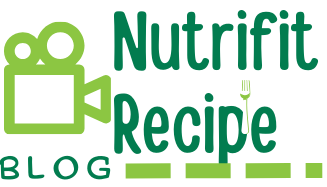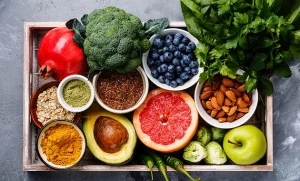Plant-based eating will keep becoming more and more popular in 2024 for good reason. The advantages are many whether your purpose for switching to a plant-based diet is animal welfare, environmental sustainability, or health-related. Making the change, meanwhile, can occasionally feel daunting. Following the correct techniques can help you to keep a balanced and fulfilling plant-based diet easier than before. These are some basic guidelines to help you flourish on a plant-based diet in 2024, so guaranteeing you get the nutrients you need and will be enjoying varied and great meals.
Start slow and work gradually
Starting softly is one of the best strategies for making the switch to a plant-based diet. Start by substituting one or two meals a week with plant-based choices instead of eliminating all animal products all at once. Long term, this method makes the change more sustainable and less intimidating. You might start “Meatless Mondays” or progressively replace conventional dairy products with plant-based substitutes. As you discover more plant-based foods and flavours throughout time, you will find it simpler to include this kind of eating permanently into your life.
Emphasise foods with great nutrient density
Although plant-based diets can be quite nutrient-dense, you need to be sure you are getting the correct ones. To guarantee you are getting all the vital minerals and vitamins, a well-balanced plant-based diet should incorporate a range of entire foods. Emphasise foods high in nutrients including leafy greens, beans, lentils, whole grains, nuts, seeds, and fruits. These foods abound in vitamins, and minerals including iron, calcium, magnesium, and folate as well as fibre. Including a range of vibrant veggies, healthy grains, and legumes will naturally satisfy all your dietary requirements.
Remember protein
Getting enough protein is one of the most often expressed worries about changing to a plant-based diet. Although plant-based protein sources abound, it’s crucial to mix them to guarantee you’re getting all the necessary amino acids. Among the great plant-based proteins include beans, lentils, chickpeas, tofu, tempeh, quinoa, and edamame. One further high-protein choice is seitan, derived from wheat gluten. Including a range of these foods in your meals can help you to readily satisfy your protein requirements without depending on animal products.
Plan Your Dinners
Maintaining a plant-based diet mostly depends on planning, especially in the beginning stages. Little preparation can help you to make sure you have all the tools you need to create satisfying meals all through the week. Meal planning will save time and lessen stress on hectic days. Think about batch cooking basics including beans, quinoa, rice, grains, and roasted veggies fit for several meals. Making ahead also lets you experiment with new plant-based dishes and add a range of tastes to your diet, so making your meals appealing and fun.
Prepare yourself with plant-based essentials
Store basic plant-based foods in your cupboard to simplify plant-based cooking. Often less expensive than their animal-based equivalents, these essentials will enable you to construct a great variety of meals. Among the must-have pantry goods are lentils, chickpeas, coconut milk, nutritional yeast, tahini, spices, plant-based broths, and beans (canned or dry). Don’t overlook using plant-based protein sources like tofu, tempeh, or seitan in addition to a range of kinds of milk—such as almond, soy, or oat milk. Having these few ingredients guarantees that you will always be ready for a great and encouraging plant-based dinner.
Investigate Plant-Based Replaces
The extensive range of replacements for conventional animal-based products is one of the wonderful benefits of the plant-based movement. From dairy-free cheeses and yoghurts to plant-based burgers and sausages, there are countless choices to substitute the tastes and textures you enjoy. Although processed plant-based substitutes are handy, you still want to stress natural foods including vegetables, legumes, and whole grains in your diet. Use alternatives sparingly and within line with a balanced diet high in fresh, whole-plant foods.
Stay Balanced and Listen to Your Body
Changing to a plant-based diet is a personal trip, thus you should pay attention to your body all through. Consider your feelings following meals and, if needed, make changes. For instance, think about whether you are consuming enough calorie-dense plant foods including avocados, almonds, and seeds if you feel slow or notice you are lacking energy. Furthermore, make sure you are getting enough healthy fats as they are so important for brain function and hormone control. A well-balanced diet featuring a range of nutritious foods will keep you feeling full and energised.
Remain Knowledgeable About Essential Minerals
Although most of the nutrients you require come from a plant-based diet, there are a few important ones to focus especially on. These cover iron, omega-3 fatty acids, vitamin B12, and vitamin D. Since most animal products contain vitamin B12, persons on a plant-based diet must either eat fortified foods or take a B12 supplement. Sunlight or fortified meals supply vitamin D; omega-3s come from walnuts, flaxseeds, and chia seeds. Plant foods include lentils, spinach, and quinoa abound in iron; nevertheless, to improve absorption, couple iron-rich meals with vitamin C.
Examine Plant-Based Cooking Methods
Making plant-based meals invites a universe of fresh flavours and cooking methods. To highlight your plant-based ingredients, embrace techniques that include roasting, grilling, sautéing, and steaming. Roasting vegetables, for instance, can accentuate their inherent taste and sweetness. A soft, delicious meal might result from sautéing leafy greens such as spinach or kale; grilled tofu or tempeh can have a great smokey taste. Learning different cooking methods will guarantee that you’re maximising the ingredients you utilise and keep your dinners interesting.
Interact with the Plant-Based Community
Changing to a plant-based diet is a lot simpler when you have a support network. There will be lots of online communities, social media groups, and forums in 2024 where you may exchange recipes, pose enquiries, and get ideas. Talking to people on a similar path will keep you connected and driven. The plant-based community is a great tool whether your search is for dinner ideas, eating-out advice, or support to keep going.
Conclusion
Changing to a plant-based diet in 2024 can be a wise and health-promoting choice. Starting slow, emphasising nutrient-dense foods, and forward preparation will help you to make the change and savour a range of great meals. Don’t overlook including plant-based protein sources, try different cooking methods, and keep current with important nutrients. You will be able to live on a plant-based diet while savouring a great range of flavours and dishes that support your health, the environment, and animal welfare with a little preparation and some culinary imagination.





